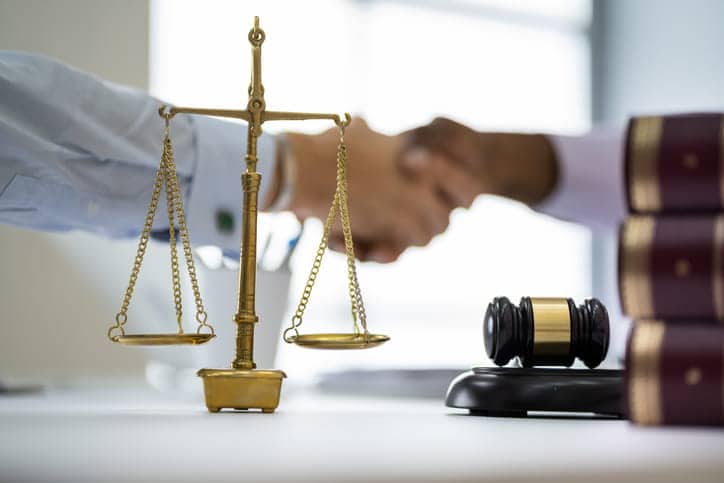Florida’s Comparative Negligence Laws
Determining fault after an accident is never an easy task. All states have their own guidelines on how fault is determined, what that means for liability, and any negligence claims that are filed afterward.

Comparative negligence laws — or the laws determining the amount of damages a plaintiff can seek — vary from state to state. In the Sunshine State, comparative negligence laws have changed in recent years. The state went from applying pure comparative negligence laws to modified comparative negligence laws in cases where an individual was injured because of another individual’s negligence.
Today, we will explore the differences between these comparative negligence laws, how they are applied in Florida, and your rights and options if you’ve been injured because of someone else’s negligence, even if you were partially at fault.
What Does Comparative Negligence Mean?
Comparative negligence is a tort law principle applied when two parties are involved in an accident, and both can be held negligent. This principle discerns the percentage of liability each party holds and determines the amount of damages each party can seek.
Under comparative negligence, both parties are proportionally held liable based on the degree of their negligence. As such, damages are awarded proportionally.
For example, if two drivers are involved in a car accident in Florida, and both were at fault for the accident, their level of fault will determine the amount of damages they can seek. The more they are at fault, the less damages they may be eligible to pursue. Florida insurance companies will assign blame among drivers using percentages. For example, there could be a 70/30 basis where one driver is 70% to blame, and the other is 30%.
What To Know About Comparative Negligence Laws
There are three types of comparative negligence laws. They include:
- Pure comparative negligence: This is where all parties involved in an accident can collect damages
- Modified comparative negligence: This is when one party is the majority at fault and is barred from collecting damages (some states recognize the majority as 50% at fault while others recognize the majority as 51% at fault)
- Slight-gross negligence: A plaintiff can only collect damages if they are slightly negligent
There is also a contributory negligence system that bars an individual from collecting any damages if they are partially at fault.
What Are Florida’s Comparative Negligence Laws?
Since 1973, over 50 years, Florida has recognized pure comparative negligence laws. Under this type of comparative negligence, plaintiffs had the right to recover damages after an injury, even if they were 99% responsible for the accident.
The state changed its laws on March 24, 2023, after House Bill 837 was signed into law. The state retired its use of pure comparative negligence and adopted modified comparative negligence laws instead.
Under Florida’s new modified comparative negligence law, a plaintiff is allowed to collect damages that are proportional to the percentage of their fault, so long as that percentage falls under 50%. Individuals who are more than 50% responsible for an accident are barred from collecting damages.
The transition to modified comparative negligence means that individuals who are partly responsible are eligible for less compensation based on their percentage of fault.
When Does Modified Comparative Negligence Apply in Florida?
The new modified comparative negligence law in Florida applies to all negligence claims except medical malpractice negligence cases as outlined in Florida State Statute section 768.81(5). Additionally, the revised negligence laws can apply to cases after March 24, 2023. Cases that happened before this date will adhere to Florida’s previous pure negligence laws.
Have You Been Injured? Let Bernstein & Maryanoff Injury Attorneys Fight for You
If you have been injured in a Miami accident and share some responsibility for the incident, you still have legal rights and options. Explore those options when you speak with the experienced personal injury lawyers at Bernstein & Maryanoff Injury Attorneys. Our personal injury attorneys will help analyze your case and determine how Florida’s revised comparative negligence laws apply to your situation.
Even if you are partially to blame for an accident, you may have the right to pursue damages. Our attorneys will work diligently to collect pertinent evidence in your case to determine liability and negligence to recover the damages you may be entitled to.
Sources:
About the Author

Jack G. Bernstein, ESQ.
Jack Bernstein is a hard-working and highly motivated personal injury attorney in Miami, Florida with over three decades of experience. He is a strategist and idea person, with a genuine passion for helping his firm’s clients. If you’ve been injured, contact Jack Bernstein today for a free evaluation of your case.
